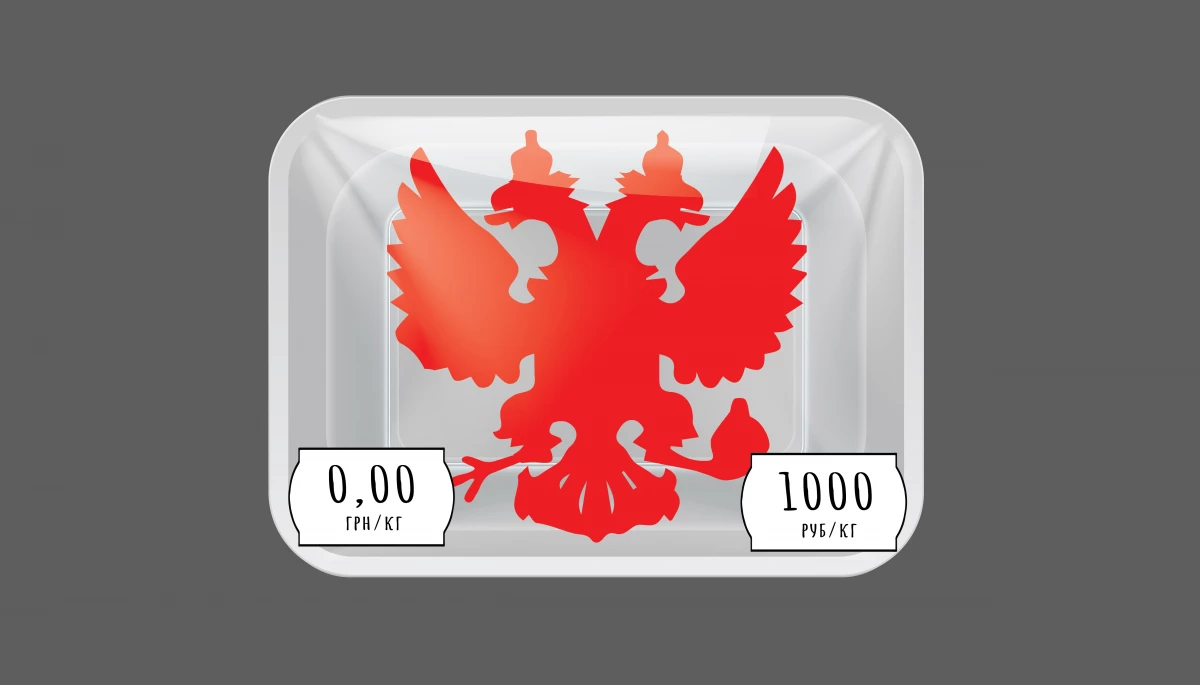Українською читайте тут.
Since February 24, Detector Media has been monitoring the Ukrainian segment of social media and the Kremlin’s media and documenting the chronicle of Russian disinformation about Russia’s war against Ukraine on a daily basis. Recently, we have also started doing regular reviews. Read the latest of them here: February 1-8, February 9-28, March 1-14, March 14-21, the summary for ten months, as well as a review of the most ridiculous fakes during the year of the full-scale war.
From March 23 to March 30, 2023, Detector Media recorded more than fifty Russian disinformation attacks. During this time, propagandists claimed that life in Russia was very good, Ukrainians practiced Satanism, and the Ukrainian language was artificial. The propagandists also claimed that large organizations, such as the United Nations, did not care about the fate of the “people of the Donbas”.
This week, Detector Media analysts recorded a fake news story about a website that allegedly “invents” the Ukrainian language. The reports stated that Ukrainians had created a “special website” called “Slovotvir” where they invent new lexemes for the Ukrainian language. They claimed that this was evidence that the language was “artificial”. The posts were accompanied by a screenshot with “examples of invented words”.
The Slovotvir project does exist, but it does not invent new words: the site’s tools allow you to find specific Ukrainian equivalents to words of foreign origin. If you choose the word “lemon”, as the propagandists did, the resource will simply offer several Ukrainian equivalents.
Russian propaganda has previously implied that the Ukrainian language is “artificial” and either derived from Russian or a dialect altogether. This tactic is employed by Moscow to psychologically connect Ukrainians with Russians by claiming that we share language, traditions, and customs and are essentially “blood siblings”.
Contrary to Russian propaganda, the modern Ukrainian language is not an artificially created and imposed language. The language has undergone a lengthy process of development and evolution. The first work in the modern Ukrainian spoken language, Ivan Kotliarevsky’s Eneida, was written prior to 1798, marking an early milestone in the language’s formation.
This week, a message surfaced in the media claiming that the UN Security Council showed a lack of concern for the suffering of Donbas residents. This was due to the council’s decision not to permit the attendance of “ombudsman” Daria Morozova, a representative of the occupation authorities of the Donetsk region, at its meeting. Russian agitprop further propagated messages that the West and the United Nations, in particular, are indifferent to the situation in the Luhansk and Donetsk regions. The claim is that the UN refuses to receive first-hand information regarding the catastrophic humanitarian situation in Donbas.
The decision of the UN Security Council to deny attendance to the “ombudsman” of the occupied part of the Donetsk region was not motivated by “Russophobia” or a refusal by the West to acknowledge the struggles of residents in Ukrainian territories temporarily occupied by Russia. On March 17, the UN Security Council voted against allowing a representative of the occupation authorities to attend the meeting because there is no legitimate “ombudsman” for the occupied territories of the Donetsk region. This position is fictitious and is part of a fabricated Russian occupation entity. In actuality, it is Russia that bears responsibility for the humanitarian situation in the temporarily occupied territories of Ukraine. Russia initiated the war and continues to kill soldiers and civilians, obstructing the investigation of crimes against civilians, among other things. Meanwhile, the Kremlin presents a false narrative of being a defender of civilians, including children, while demonizing Ukraine.
Propagandists have also spread manipulative claims that the West has “confirmed” the desire of residents of the Donetsk and Luhansk regions to secede from Ukraine. These messages refer to an article in the British newspaper, The Spectator, which allegedly presents evidence of the political views of individuals from these regions.
It is true that The Spectator published an op-ed by Owen Matthews titled “One year on: how will the Ukraine war end?”. However, the article does not provide evidence for the claim that residents of Donetsk and Luhansk regions do not wish to be a part of Ukraine, as the author expresses his personal opinions. The article also contains factual errors and manipulative claims. Matthews bases his supposed determination of the residents’ political preferences on his personal observations, which are not backed by any reliable evidence. He states that only “more or less homogeneously anti-Ukrainians” remain in the Donetsk and Luhansk regions. He also claimed that further de-occupation of the territories would be seen by locals as a “war of aggression”. Russian propagandists have spread similar false narratives about all of the occupied territories. At least until when the Ukrainians liberate them.
Propagandists have also launched a disinformation campaign aimed at demoralizing Ukrainians and creating panic by spreading false narratives about how much better life is in Russia. Various Telegram channels that promote pro-Kremlin rhetoric have broadcast messages claiming that food prices in Ukraine are unaffordable and skyrocketing. The goal is to convince Ukrainians to surrender to Russia quickly because “everything is cheaper” there and the economic situation is better. To support their false claims, the authors of these messages attach photos of price tags from Ukrainian supermarkets and compare them to those from Russia. They collect photos of real Ukrainian price tags under the guise of a social media challenge.
However, it is unclear whether the Russian price tags used by propagandists are authentic or fabricated. Russia is the main cause of rising food prices in Ukraine and globally. The occupation of southern Ukraine has led to another crisis as farmers are unable to work properly, and the grain corridor is blocked. Ukraine does not have enough domestic goods, and imported goods are more expensive, leading to higher retail prices. This phenomenon is not unique to Ukraine, as prices have increased in other European countries as well.
Contrary to the propagandist narrative, the assertion that the Russian economy is stable is untrue. According to reports by the World Bank, the International Monetary Fund, and the Organization for Economic Cooperation and Development, 2022 was a bad year for the Russian economy. Experts estimate that Russia’s gross domestic product (GDP) will decrease by at least 2.2% in the best-case scenario and up to 3.9% in the worst-case scenario. The Russian economy is projected to continue declining in 2023, with GDP expected to fall by 5.6% or 3.3%, according to various organizations.
The propagandists aim to perpetuate the false narrative that Ukraine is unlivable due to its lack of electricity and high prices for utilities and food. By spreading these messages, the authors seek to induce panic among Ukrainians and make them believe that “nothing will change”.
At the end of the week, pro-Russian Telegram channels spread a fake news story claiming that a Ukrainian man had received a “ death notice for his son” in an advertising booklet from the Ministry of Defense. The false claim was that the brochure had been used as an official document with all the necessary information written on its back. As evidence, the authors of these messages attached videos to their publications.
However, it is evident that the “document” shown in the video is fraudulent. The stamp of the Ministry of Defense, with the code “12345678,” was taken from an advertising template of a stamp and seal manufacturer, indicating that it is not genuine. Furthermore, while the address on the fake notification matches a multi-story residential building, the apartment number of the recipient is not specified, meaning that the document would not have been delivered to him. Additionally, there were spelling errors in the appeal, such as writing “Dnypro” instead of “Dnipro”.
Russian propaganda sources have claimed that President Zelenskyy has “seized church power in Ukraine” following reports that the lease agreement between the Kyiv-Pechersk Lavra National Reserve and the Ukrainian Orthodox Church of the Moscow Patriarchate has expired. Representatives of the Ukrainian Orthodox Church of the Moscow Patriarchate (UOC-MP) were asked to vacate the monastery, but the clergy refused to comply with the Ministry of Culture’s decision. According to propagandists, Zelenskyy has launched the latest “attack on Orthodoxy,” with the “eviction” of priests from Kyiv-Pechersk Lavra demonstrating the “satanic views of the Ukrainian authorities.”
Contrary to the agitprop claims, Ukraine is not “seizing” the Kyiv Cave Monastery because it has always been owned by the state. In 2013, the Azarov government leased the monastery to the Moscow Patriarchate. However, a special commission in 2022 discovered that the UOC-MP had violated the terms of the contract by engaging in illegal construction and reconstruction of historical monuments on the monastery’s premises. Russian propaganda aims to persuade its audience that Ukraine’s actions violate religious canons and therefore warrant mobilization and armed intervention in support of the “canonical Orthodox Church.”



